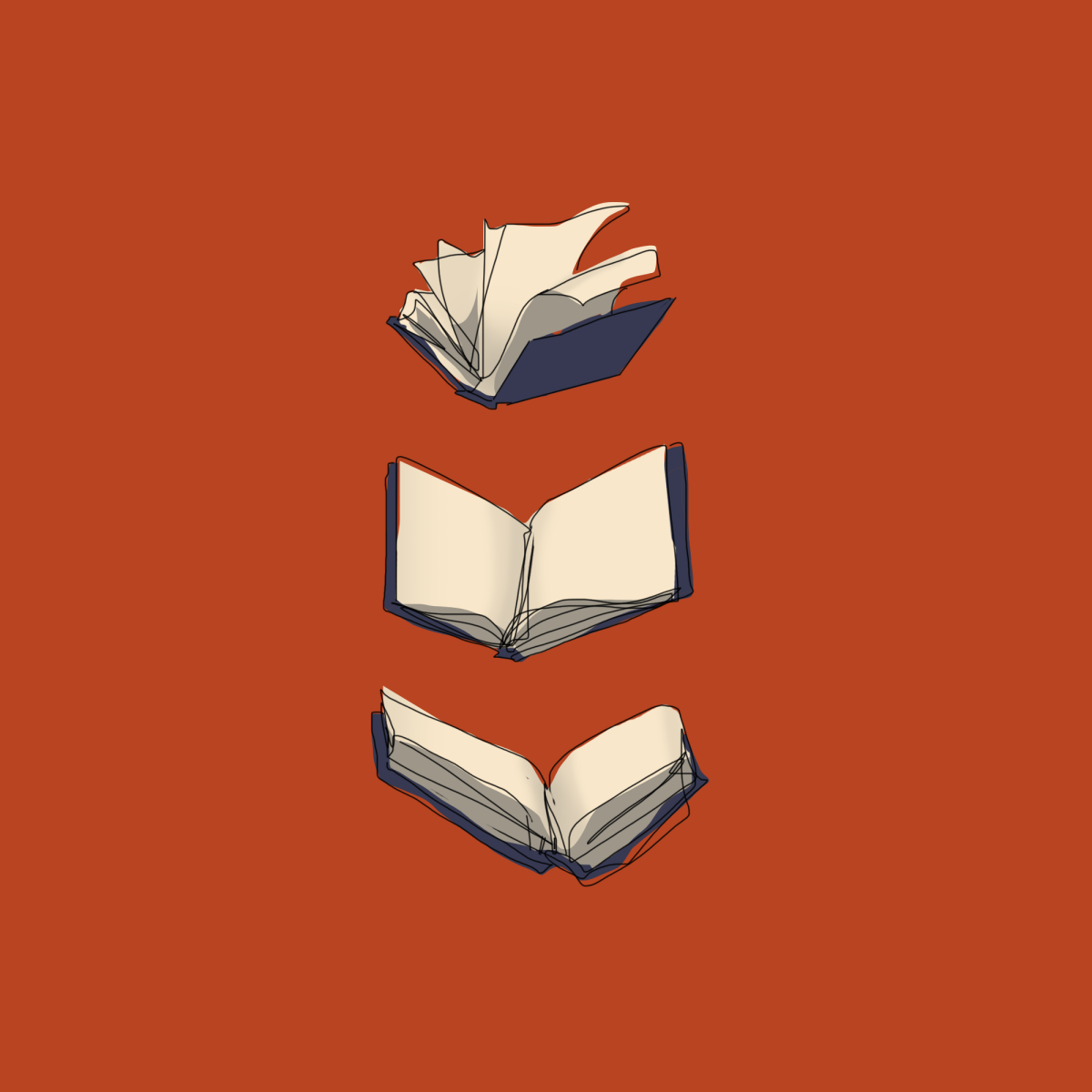With little to do over winter break, I turned to avid reading to fight off my boredom. And indeed, I was entertained by the bubbling BookTok community, only to find Sally Rooney’s “Normal People” quickly slide onto my digital bookshelf. The book recommendation came from a BookTok staple video format: “Books I would sell my soul to read again for the first time,” the camera panning across manicured hands revealing book covers that enveloped ostentatious, sticky tabbed insides.
More so than finding joy within the novel itself, I was amused by the cringe of the trend: overly enthusiastic book lovers displaying their perfectly curated shelf of unread books and frequent references to people’s 2024 reading goals. The same shallow reviews praise the author’s writing as “raw” and “authentic,” and you often see meticulously annotated pages adorned with colorful sticky tabs.
No later did I realize that in BookTok culture reading is held to excessive beauty standards—a commercialized beauty pageant at best, where the actual joy of reading will most definitely not win first prize, or any prize at all for that matter.
Within the past few years, book-obsessed TikTok users and influencers have conglomerated on the so-called BookTok community, which boasts 179 billion views, making it among the largest communities on the app. Publishing houses and authors have every reason to welcome the growing swarm of BookTokers: According to Forbes, the U.S. print book market was up 9% in 2021; print sales for young adult fiction grew by almost 31% the same year. In 2022, the BookTok-famous novel “It Ends With Us” by Colleen Hoover outsold the bible by 2.3 million copies. Meanwhile, Hoover landed herself a spot on Time Magazine’s list of the “The 100 Most Influential People of 2023.”
Likewise, BookTok is increasing readership among the public. A 2023 poll conducted among TikTok users in the United States showed that 48% of users were reading more because of the influence of BookTok.
Yet, as much as BookTok is a driving force in the publishing industry—spawning best-sellers left and right while welcoming new readers along the way—it has swamped reading in senseless commercialism. Bookstores now have entire bays dedicated to books marketed with the sign “as seen on TikTok.” BookTokers receive loads of books from publishers to artfully show off on their platforms, but that never reappear on the channel. Nonetheless, people hop onto the bandwagon: They want to be in on “what everybody is talking about.” Really, they want to be able to say they have read a lot of books because that is equated with “knowing things.” And when you “know things” you are granted a generous stake in cultural capital. Who would refuse the titles of being “well-versed,” “cultured” and “literary?”
Books showered with praise on BookTok seem to follow common tropes: women lusting after hard-to-get men, enemies to lovers, morally gray villains and right person, wrong time. BookTok often challenges us to explore our reading preferences, just as I was lured into reading Sally Rooney’s romance novel “Normal People,” which I ordinarily would never have picked up because I am a diehard fan of historical fiction. Upon finishing the story, I caught myself questioning: Did I read the book for the sake of having a stake in the BookTok community, or because I genuinely enjoyed the process of reading it? Considering I gave it a poor review, it was probably the former. I realized, then, that this is the inherent nature of BookTok; in its community, the act of “being a reader” has bullied out the act of reading itself, along with the readers who genuinely enjoy reading for the quality and pleasure it adds to their life.
BookTok transcends its sheer popularity, pervading our personal space. It is no longer just some community on a social media platform—it’s a lifestyle. Procuring a massive book collection organized by color, extensively highlighting “sentimental” book quotes in all colors of the rainbow or touting oneself a “certified bookworm” are some of the few qualities that have become a stand-in for many BookTokers’ personalities—personalities that wrap every one of their over 300 books in brown paper, or encourage wearing a “cute fit” to read more or re-tab their books because they stick out too much. This raises the question: Is there even any time left for actually reading?
Granted, BookTok might be a great place to start for a new reader unsure how to navigate the vast landscape of literature. But they should be warned not to let the aesthetic thumbnails and the prospect of being a “cultured reader” get to them. In the same vein, we should all be reminded that we should read not for the sake of meeting a certain standard—unless, perhaps, it’s for English class—or to battle out some beauty competition. We should read entirely for ourselves. It is the only way we can preserve the beauty of reading in a world concerned with everything but.




